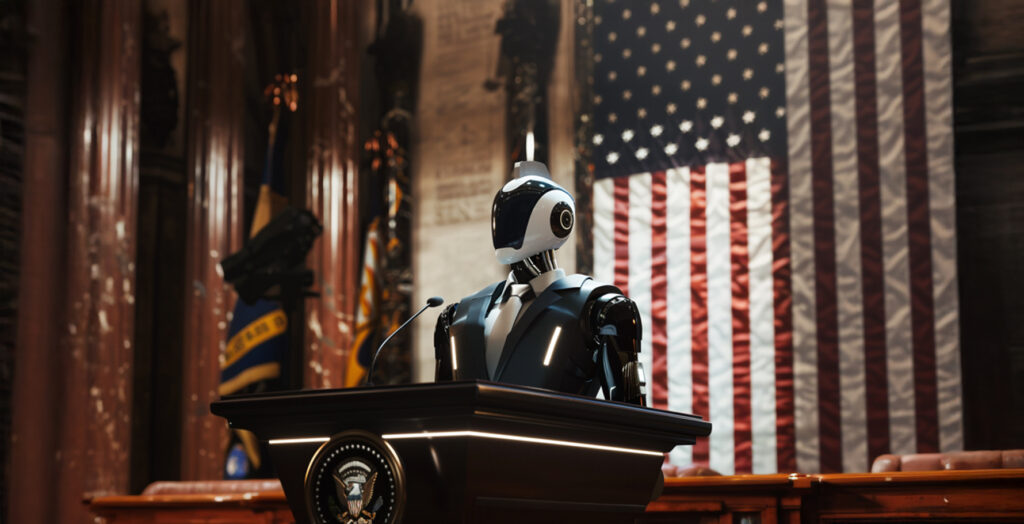
The Illusion of Privacy: How Data Regulations Fail Us
Data is everywhere—it can drive profit, do good, or cause harm. But lately, there’s been a coordinated effort to vilify data under the guise of privacy.
The problem? These calls for privacy aren’t really about protecting people—they’re about controlling who gets access to data while letting real threats slip through the cracks.
I saw this firsthand when launching Friend Verifier.
The Facebook Hypocrisy: Safety vs. Profits
We built Friend Verifier with privacy at its core. Users could scan their Facebook friends and friend requests for registered sex offenders—without creating accounts or tracking flagged individuals.
The only data we stored (long since deleted) was a unique Facebook ID to display accurate usage stats. By the time Facebook shut us down, nearly 14 million people had used the tool.
Early on, we spoke with Facebook insiders, including Mark Zuckerberg’s personal assistant. We explained how the app worked, emphasized our strict privacy safeguards, and shared our mission.
Off the record, they approved of what we were doing. But they made one thing abundantly clear:
💬 “We will never publicly acknowledge your existence.”
Why bring this up? Because as soon as we went viral, Facebook pulled the APIs that powered Friend Verifier. They ignored our calls, emails, and messages. Then we discovered they had also revoked access to venture-backed platforms, including one that helped friends share job openings.
But when those well-funded startups pushed back, Facebook finally responded, claiming it was all about “protecting user privacy.”
We reached out again, emphasizing how we balanced privacy and safety—making Facebook a safer place.
Once again, silence.
Then Came Cambridge Analytica…
Soon after, the Cambridge Analytica scandal broke. Facebook allowed them to exploit user data for political gain—and profited from it.
Yet, they shut down Friend Verifier, an app designed to protect users, despite our zero data retention policies and strict privacy safeguards.
Their so-called API crackdown wasn’t about protecting privacy—it was about protecting their profits.
From Corporate Hypocrisy to Government Overreach
The same broken approach to privacy that let Facebook crush competitors while profiting off bad actors has now fueled overreaching government regulations, like California’s CCPA/CPRA.
These laws, meant to safeguard consumers, instead cripple businesses, enable fraud, and fuel lawsuits over minor data issues.
Rather than enhancing security, they create:
🚧 Red tape
💰 Higher costs
🔒 Fewer free services
…all under the illusion of “consumer protection.”
The $12 Billion Data Removal Industry: A Fear-Based Racket
This regulatory mess has also spawned a $12 billion data removal industry, preying on consumer fear.
These services charge recurring fees to remove personal data from broker sites, yet investigations show many fail to deliver.
The result? People paying for a false sense of security, while real privacy threats go unchecked.
History Repeats Itself: The Do Not Call List Fiasco
It’s no secret—I love data. But when you manage a global asset spanning 130 countries with trillions of PII and biometric records, being a responsible steward is essential.
With great power comes great responsibility.
Unfortunately, government bureaucracy rushes to regulate first, then figures out if those regulations even work—if they bother at all.
Look at the Do Not Call List of the early 2000s. It worked—legit companies complied, and fines kept them in check.
I saw it firsthand in finance. A win for privacy—until a 2019 Wall Street Journal investigation exposed its flaws:
📞 $208 million in fines issued, but only $6,790 collected.
Another regulation riddled with loopholes and left unenforced—just like today’s privacy laws.
The Government’s Double Standard: The NSA and Mass Surveillance
If privacy advocates were serious about stopping unethical data collection, they wouldn’t just be targeting private businesses—they’d be demanding accountability from the government itself.
In 2013, Edward Snowden exposed how the U.S. government was secretly collecting and storing the personal data of millions of Americans through mass surveillance programs like PRISM, with full cooperation from Big Tech—including Facebook, Google, Apple, and Microsoft.
🚨 The same federal government that claims to be “protecting privacy” with laws like the CCPA/CPRA was secretly collecting phone records, emails, and private messages—without user consent.
Even more disturbing? While legitimate businesses are fined or shut down over privacy concerns, none of the government agencies involved in mass surveillance faced any real consequences.
💬 Where was the crackdown on the NSA?
💬 Where were the billion-dollar fines for mass data collection?
Instead, whistleblowers like Snowden were forced into exile, while the same government that ignored its own privacy violations is now dictating how companies should handle data.
It’s not about privacy—it’s about control.
Veraos: The Real Solution—Empowering the Good, Protecting Freedom
The difference between Veraos and the institutions that have failed the American people is simple: accountability.
As a private company, if we were to go rogue, break the law, or betray public trust, we would face the full weight of the American people.
That’s how it should be—because in a free market, businesses that act unethically are exposed and held responsible.
Unlike the unaccountable government agencies that have abused data for decades, Veraos stands for transparency, integrity, and stewardship.
Our data lake is not a tool for control—it’s a weapon against those who prey on society.
We exist to empower the good guys—law enforcement, national security agencies, and ethical institutions—to protect American lives while championing the ideals of the U.S. Constitution.
🔹 We don’t exploit data—we protect it.
🔹 We don’t weaponize information against the innocent—we use it to stop criminals.
🔹 We don’t serve political agendas—we serve truth, safety, and justice.
Privacy shouldn’t be an illusion. Security shouldn’t be a privilege. Accountability shouldn’t be optional.
The right data, in the right hands, for the right reasons—that is Veraos.